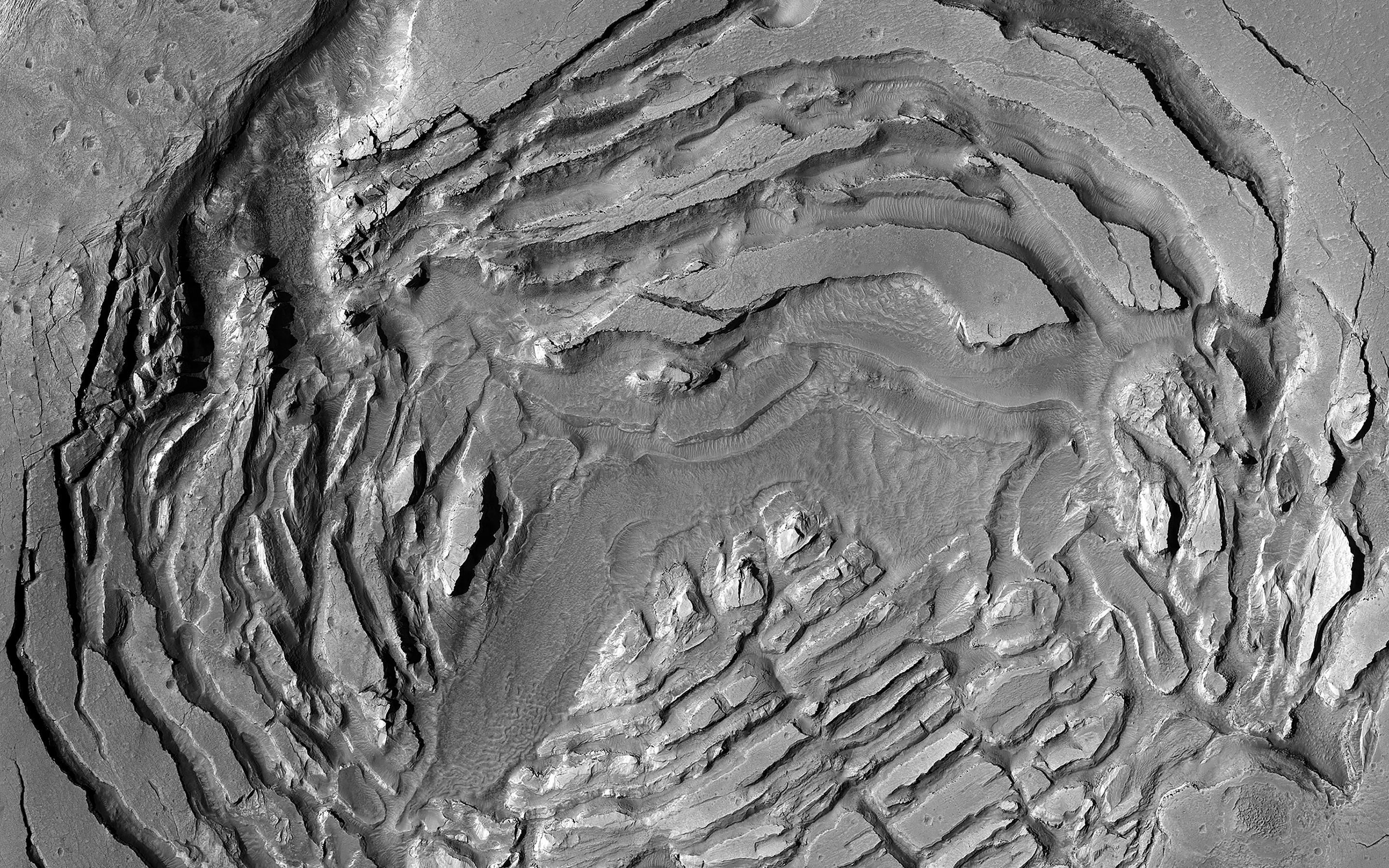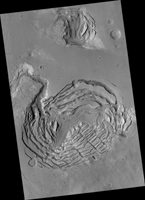
|
A Mysterious Fractured Depression on Mars
- Click the image above for a larger view
- Full-Res JPEG (2880 x 1800) (1.3 MB)
- Full-Res TIFF (2880 x 1800) (5.2 MB)
Caption:

Map Projected Browse Image
Click on image for larger version
While we have learned so much about Mars after over 50 years of exploration with spacecraft, there are some features that continue to be mysteries.
These depressions, found near the northern edge of the ancient highlands, have fractures that indicate collapse toward their centers. This pattern can be found on glaciers that sit atop volcanoes after a small eruption has melted some of the ice.
It is plausible that there is substantial ice buried underground at this location on Mars but there is no obvious process to remove some of the ice to form these depressions.
The map is projected here at a scale of 25 centimeters (9.8 inches) per pixel. (The original image scale is 30.3 centimeters [11.9 inches] per pixel [with 1 x 1 binning]; objects on the order of 91 centimeters [35.8 inches] across are resolved.) North is up.
This is a stereo pair with ESP_071607_2200 .
Background Info:
The University of Arizona, in Tucson, operates HiRISE, which was built by Ball Aerospace & Technologies Corp., in Boulder, Colorado. NASA's Jet Propulsion Laboratory, a division of Caltech in Pasadena, California, manages the Mars Reconnaissance Orbiter Project for NASA's Science Mission Directorate, Washington.
Cataloging Keywords:
| Name | Value | Additional Values |
|---|---|---|
| Target | Mars | |
| System | ||
| Target Type | Planet | |
| Mission | Mars Reconnaissance Orbiter (MRO) | |
| Instrument Host | Mars Reconnaissance Orbiter | |
| Host Type | Orbiter | |
| Instrument | High Resolution Imaging Science Experiment (HiRISE) | |
| Detector | ||
| Extra Keywords | Map, Volcano | |
| Acquisition Date | ||
| Release Date | 2022-01-21 | |
| Date in Caption | ||
| Image Credit | NASA/JPL-Caltech/University of Arizona | |
| Source | photojournal.jpl.nasa.gov/catalog/PIA25089 | |
| Identifier | PIA25089 | |
